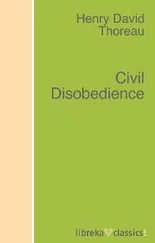caraway seed in it,—though I hold that almonds are most wholesome
without the sugar,—and not how the inhabitant, the indweller, might
build truly within and without, and let the ornaments take care of
themselves. What reasonable man ever supposed that ornaments were
something outward and in the skin merely,—that the tortoise got his
spotted shell, or the shellfish its mother-o’-pearl tints, by such a
contract as the inhabitants of Broadway their Trinity Church? But a man
has no more to do with the style of architecture of his house than a
tortoise with that of its shell: nor need the soldier be so idle as to
try to paint the precise color of his virtue on his standard. The enemy
will find it out. He may turn pale when the trial comes. This man
seemed to me to lean over the cornice, and timidly whisper his half
truth to the rude occupants who really knew it better than he. What of
architectural beauty I now see, I know has gradually grown from within
outward, out of the necessities and character of the indweller, who is
the only builder,—out of some unconscious truthfulness, and nobleness,
without ever a thought for the appearance and whatever additional
beauty of this kind is destined to be produced will be preceded by a
like unconscious beauty of life. The most interesting dwellings in this
country, as the painter knows, are the most unpretending, humble log
huts and cottages of the poor commonly; it is the life of the
inhabitants whose shells they are, and not any peculiarity in their
surfaces merely, which makes them _picturesque;_ and equally
interesting will be the citizen’s suburban box, when his life shall be
as simple and as agreeable to the imagination, and there is as little
straining after effect in the style of his dwelling. A great proportion
of architectural ornaments are literally hollow, and a September gale
would strip them off, like borrowed plumes, without injury to the
substantials. They can do without _architecture_ who have no olives nor
wines in the cellar. What if an equal ado were made about the ornaments
of style in literature, and the architects of our bibles spent as much
time about their cornices as the architects of our churches do? So are
made the _belles-lettres_ and the _beaux-arts_ and their professors.
Much it concerns a man, forsooth, how a few sticks are slanted over him
or under him, and what colors are daubed upon his box. It would signify
somewhat, if, in any earnest sense, _he_ slanted them and daubed it;
but the spirit having departed out of the tenant, it is of a piece with
constructing his own coffin,—the architecture of the grave, and
“carpenter” is but another name for “coffin-maker.” One man says, in
his despair or indifference to life, take up a handful of the earth at
your feet, and paint your house that color. Is he thinking of his last
and narrow house? Toss up a copper for it as well. What an abundance of
leisure he must have! Why do you take up a handful of dirt? Better
paint your house your own complexion; let it turn pale or blush for
you. An enterprise to improve the style of cottage architecture! When
you have got my ornaments ready I will wear them.
Before winter I built a chimney, and shingled the sides of my house,
which were already impervious to rain, with imperfect and sappy
shingles made of the first slice of the log, whose edges I was obliged
to straighten with a plane.
I have thus a tight shingled and plastered house, ten feet wide by
fifteen long, and eight-feet posts, with a garret and a closet, a large
window on each side, two trap doors, one door at the end, and a brick
fireplace opposite. The exact cost of my house, paying the usual price
for such materials as I used, but not counting the work, all of which
was done by myself, was as follows; and I give the details because very
few are able to tell exactly what their houses cost, and fewer still,
if any, the separate cost of the various materials which compose them:—
Boards.......................... $ 8.03½, mostly shanty boards.
Refuse shingles for roof sides,.. 4.00
Laths,........................... 1.25
Two second-hand windows
with glass,................... 2.43
One thousand old brick,.......... 4.00
Two casks of lime,............... 2.40 That was high.
Hair,............................ 0.31 More than I needed.
Mantle-tree iron,................ 0.15
Nails,........................... 3.90
Hinges and screws,............... 0.14
Latch,........................... 0.10
Chalk,........................... 0.01
Transportation,.................. 1.40 I carried a good part
———— on my back.
In all,..................... $28.12½
These are all the materials excepting the timber stones and sand, which
I claimed by squatter’s right. I have also a small wood-shed adjoining,
made chiefly of the stuff which was left after building the house.
I intend to build me a house which will surpass any on the main street
in Concord in grandeur and luxury, as soon as it pleases me as much and
will cost me no more than my present one.
I thus found that the student who wishes for a shelter can obtain one
for a lifetime at an expense not greater than the rent which he now
pays annually. If I seem to boast more than is becoming, my excuse is
that I brag for humanity rather than for myself; and my shortcomings
and inconsistencies do not affect the truth of my statement.
Notwithstanding much cant and hypocrisy,—chaff which I find it
difficult to separate from my wheat, but for which I am as sorry as any
man,—I will breathe freely and stretch myself in this respect, it is
such a relief to both the moral and physical system; and I am resolved
that I will not through humility become the devil’s attorney. I will
endeavor to speak a good word for the truth. At Cambridge College the
mere rent of a student’s room, which is only a little larger than my
own, is thirty dollars each year, though the corporation had the
advantage of building thirty-two side by side and under one roof, and
the occupant suffers the inconvenience of many and noisy neighbors, and
perhaps a residence in the fourth story. I cannot but think that if we
had more true wisdom in these respects, not only less education would
be needed, because, forsooth, more would already have been acquired,
but the pecuniary expense of getting an education would in a great
measure vanish. Those conveniences which the student requires at
Cambridge or elsewhere cost him or somebody else ten times as great a
sacrifice of life as they would with proper management on both sides.
Those things for which the most money is demanded are never the things
which the student most wants. Tuition, for instance, is an important
item in the term bill, while for the far more valuable education which
he gets by associating with the most cultivated of his contemporaries
no charge is made. The mode of founding a college is, commonly, to get
up a subscription of dollars and cents, and then following blindly the
principles of a division of labor to its extreme, a principle which
should never be followed but with circumspection,—to call in a
contractor who makes this a subject of speculation, and he employs
Irishmen or other operatives actually to lay the foundations, while the
students that are to be are said to be fitting themselves for it; and
Читать дальше












